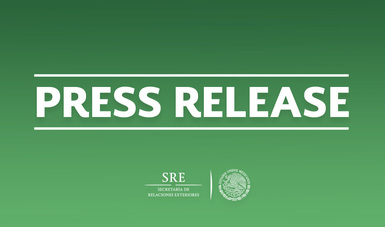As part of Mexico’s ongoing commitment to the promotion and protection of human rights, senior government officials participated in today’s public hearings and meetings of the 161st regular session of the Inter-American Commission on Human Rights (IACHR), held to review various cases and issues related to human rights in the Americas.
The government officials took part in four public hearings: 1) the state of independence and autonomy of the justice system in Mexico; 2) the human rights situation of asylum seekers and refugees in Mexico; 3) the right to truth in cases involving gross human rights violations in Mexico; and 4) the Special Follow-Up Mechanism to the Ayotzinapa Case in Mexico.
The Mexican delegation reviewed the issues with the IACHR commissioners and the petitioners, listened to all of the concerns and discussed the progress that has been made while recognized that challenges still exist in protecting human rights.
At the hearing on the independence and autonomy of the justice system, Mexico emphasized its commitment to dialogue through participatory discussion forums, especially to analyze ways in which civil society can participate in the transition to the Office of the Prosecutor General.
During the hearing on the human rights situation of asylum seekers and refugees in Mexico, the Undersecretary of Multilateral Affairs and Human Rights, Ambassador Miguel Ruiz Cabañas, acknowledged the global challenges associated with this issue, saying that "Mexico recognizes migrants as partners in development, so it is essential to build bridges rather than walls.” He called for all States to work together to address the situation with co-responsibility.
During the hearing, and in response to the request of the petitioning organizations, the Mexican government committed to creating an inclusive working group to identify ways to strengthen refugee policy, especially with regard to integrating them into our country. The IACHR responded very positively to this initiative and pledged the support of its Rapporteur on the Rights of Migrants to the dialogue.
At the hearing on the right to truth in cases of gross human rights violations in Mexico, the Mexican government discussed the progress made in transparency as a result of the reforms to the Federal Law on Transparency and Access to Public Information. It also reiterated its commitment to full access to information and to the investigations and files in compliance with international standards, while protecting personal information.
At the hearing on the follow-up mechanism to the Ayotzinapa case, the government officials reiterated their commitment to investigating the case, searching for the students and assisting the victims and the students’ families, exhausting all possible lines of investigation and addressing and following up on all the observations and recommendations of the IACHR Interdisciplinary Group of Independent Experts.
The Mexican government specifically asked the IACHR and the technical representatives of the Follow-up Mechanism to attend the meetings between senior government officials, the parents and their representatives and reiterated its firm commitment to transparency and dialogue with the parents as the fundamental pillars of the Special Follow-up Mechanism.
Lastly, the Mexican delegation took part in four meetings on specific cases, including three follow-ups to friendly settlement agreements, as well as one follow-up to the precautionary measures in the Ayotzinapa case, as part of the follow-up mechanism.
The Mexican delegation was headed by the Foreign Ministry’s Undersecretary of Multilateral Affairs and Human Rights, Miguel Ruiz Cabañas; the Interior Ministry’s Undersecretary for Human Rights, Roberto Campa Cifrian; and the Deputy Attorney General for Human Rights, Crime Prevention and Community Services, Sara Irene Herrerías Guerra. Other senior government officials participated as well.
By taking part in the 161st session of the IACHR, the Mexican government reaffirms its commitment to human rights in Mexico, while reiterating its policy of openness and pledging to collaborate with civil society and international human rights organizations.
